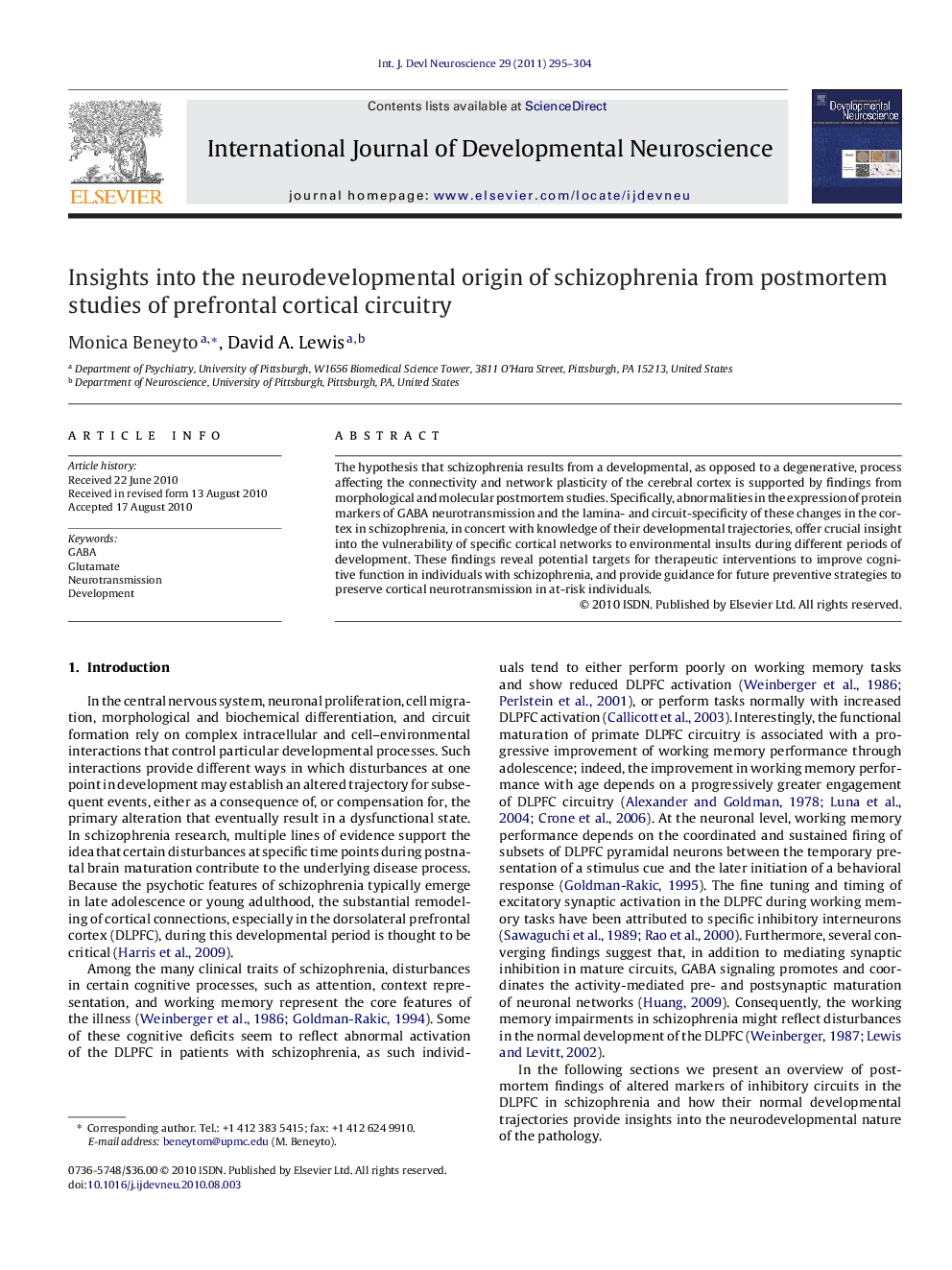| Article ID | Journal | Published Year | Pages | File Type |
|---|---|---|---|---|
| 2786626 | International Journal of Developmental Neuroscience | 2011 | 10 Pages |
The hypothesis that schizophrenia results from a developmental, as opposed to a degenerative, process affecting the connectivity and network plasticity of the cerebral cortex is supported by findings from morphological and molecular postmortem studies. Specifically, abnormalities in the expression of protein markers of GABA neurotransmission and the lamina- and circuit-specificity of these changes in the cortex in schizophrenia, in concert with knowledge of their developmental trajectories, offer crucial insight into the vulnerability of specific cortical networks to environmental insults during different periods of development. These findings reveal potential targets for therapeutic interventions to improve cognitive function in individuals with schizophrenia, and provide guidance for future preventive strategies to preserve cortical neurotransmission in at-risk individuals.
Research highlights▶ Alterations of GABA markers relate to working memory dysfunction in schizophrenia. ▶ Developmental trajectories of working memory and inhibition in DLPFC are correlated. ▶ Normal maturational events timing reflects vulnerability to schizophrenia pathology. ▶ Disturbances in schizophrenia depend upon circuitry-specific susceptibility.
